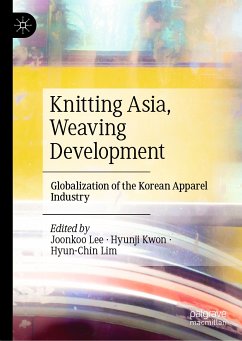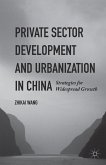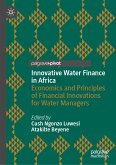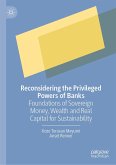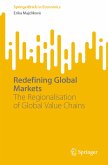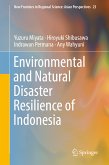Knitting Asia, Weaving Development (eBook, PDF)
Globalization of the Korean Apparel Industry
160,49 €
inkl. MwSt.
Sofort per Download lieferbar

0 °P sammeln
Knitting Asia, Weaving Development (eBook, PDF)
Globalization of the Korean Apparel Industry
- Format: PDF
- Merkliste
- Auf die Merkliste
- Bewerten Bewerten
- Teilen
- Produkt teilen
- Produkterinnerung
- Produkterinnerung

Bitte loggen Sie sich zunächst in Ihr Kundenkonto ein oder registrieren Sie sich bei
bücher.de, um das eBook-Abo tolino select nutzen zu können.
Hier können Sie sich einloggen
Hier können Sie sich einloggen
Sie sind bereits eingeloggt. Klicken Sie auf 2. tolino select Abo, um fortzufahren.

Bitte loggen Sie sich zunächst in Ihr Kundenkonto ein oder registrieren Sie sich bei bücher.de, um das eBook-Abo tolino select nutzen zu können.
This book offers a fresh look at the global apparel industry, focusing on Korean multinational corporations (MNCs) and their growing role in building regional connections and shaping economic and social development in Asia. Focusing on the multinationalization of Korean apparel firms over the past decades and their upgrading to first-tier suppliers in apparel global value chains, this edited volume highlights a host of new challenges these emerging MNCs confront in the rapidly changing global apparel industry and provides an in-depth view of their expanding role and adaptive strategies in configuring regional connections in post-Pandemic Asia.…mehr
- Geräte: PC
- ohne Kopierschutz
- eBook Hilfe
- Größe: 3.57MB
- Upload möglich
Andere Kunden interessierten sich auch für
![Private Sector Development and Urbanization in China (eBook, PDF) Private Sector Development and Urbanization in China (eBook, PDF)]() Zhikai WangPrivate Sector Development and Urbanization in China (eBook, PDF)73,95 €
Zhikai WangPrivate Sector Development and Urbanization in China (eBook, PDF)73,95 €![Innovative Water Finance in Africa (eBook, PDF) Innovative Water Finance in Africa (eBook, PDF)]() Innovative Water Finance in Africa (eBook, PDF)42,79 €
Innovative Water Finance in Africa (eBook, PDF)42,79 €![Foundations of Quantitative Happiness (eBook, PDF) Foundations of Quantitative Happiness (eBook, PDF)]() Weisheng ZhouFoundations of Quantitative Happiness (eBook, PDF)89,95 €
Weisheng ZhouFoundations of Quantitative Happiness (eBook, PDF)89,95 €![Social Enterprise in Asia (eBook, PDF) Social Enterprise in Asia (eBook, PDF)]() Social Enterprise in Asia (eBook, PDF)0,00 €
Social Enterprise in Asia (eBook, PDF)0,00 €![Reconsidering the Privileged Powers of Banks (eBook, PDF) Reconsidering the Privileged Powers of Banks (eBook, PDF)]() Kozo Torasan MayumiReconsidering the Privileged Powers of Banks (eBook, PDF)128,39 €
Kozo Torasan MayumiReconsidering the Privileged Powers of Banks (eBook, PDF)128,39 €![Redefining Global Markets (eBook, PDF) Redefining Global Markets (eBook, PDF)]() Erika MajzlíkováRedefining Global Markets (eBook, PDF)36,95 €
Erika MajzlíkováRedefining Global Markets (eBook, PDF)36,95 €![Environmental and Natural Disaster Resilience of Indonesia (eBook, PDF) Environmental and Natural Disaster Resilience of Indonesia (eBook, PDF)]() Yuzuru MiyataEnvironmental and Natural Disaster Resilience of Indonesia (eBook, PDF)89,95 €
Yuzuru MiyataEnvironmental and Natural Disaster Resilience of Indonesia (eBook, PDF)89,95 €-
-
-
This book offers a fresh look at the global apparel industry, focusing on Korean multinational corporations (MNCs) and their growing role in building regional connections and shaping economic and social development in Asia. Focusing on the multinationalization of Korean apparel firms over the past decades and their upgrading to first-tier suppliers in apparel global value chains, this edited volume highlights a host of new challenges these emerging MNCs confront in the rapidly changing global apparel industry and provides an in-depth view of their expanding role and adaptive strategies in configuring regional connections in post-Pandemic Asia.
Produktdetails
- Produktdetails
- Verlag: Springer Nature Singapore
- Erscheinungstermin: 14. August 2023
- Englisch
- ISBN-13: 9789819937646
- Artikelnr.: 68601811
- Verlag: Springer Nature Singapore
- Erscheinungstermin: 14. August 2023
- Englisch
- ISBN-13: 9789819937646
- Artikelnr.: 68601811
- Herstellerkennzeichnung Die Herstellerinformationen sind derzeit nicht verfügbar.
Joonkoo Lee is Associate Professor of Organization Studies, School of Business at Hanyang University in Seoul, South Korea. His main areas of research include globalization and development, specifically global and regional value chains, value chain governance, and economic and social upgrading in apparel, electronics and cultural/creative industries, focusing on Asia. He co-authored a book titled Mobile Asia Capitalisms, Value Chains and Mobile Telecommunication in Asia (Seoul National University Press, 2018). His work has appeared in journals such as Proceedings of the National Academy of Sciences, Industrial and Corporate Change, International Labour Review, Journal of Business Ethics, critical perspectives on international business, and Journal of International Business Policy. He received his Ph.D. in sociology from Duke University and M.A. and B.A. from Seoul National University. Hyunji Kwon is a Professor of Sociology at Seoul National University. Herresearch interests center around flexible employment arrangements, changes in organizational-level employment relations, and labor market inequality. As the principal investigator (PI), she has recently completed a multi-year research project funded by Korea’s National Research Foundation, which examined the roles and strategic actions of globalizing actors in the complex and turbulent fields of transnational corporations and global production networks. Currently, she is paying close attention to the evolving work contracts and norms, as well as the precarity and resilience of workers in the labor market with a particular focus on the creative and knowledge economy industries. She received her Ph.D. from the School of Industrial and Labor Relations at Cornell University. Before joining Seoul National University, she worked as a research fellow at Korea Labor Institute and as a lecturer in the Department of Management at King’s College London. Hyun-Chin Lim is Professor Emeritus of Sociology and Director of Civil Society Program, Asia Center, Seoul National University. He is also Elected Member, National Academy of Sciences, Republic of Korea. His main areas of research include global civil society, sociology of development, comparative capitalism, and democracy, focusing on Asia and Latin America. He authored and edited books, such as Dependent Development in South Korea (Seoul National University Pres, 1985), East meets West (Brill, 2007), Democracy in Crisis (Baiksan, 2018), and Capitalism and Capitalism in Asia (Seoul National University, 2018). He contributed his papers to journals, such as Journal of Contemporary Asia, Korean Social Science Journal, Korean Observer, Development and Society, and Journal of International Business Policy. He received his Ph.D. in Sociology from Harvard University, after obtaining M. A. and B. A. from Seoul National University.
1. Introduction: Globalization, Value Chain Governance and Supplier Experimentation (Joonkoo Lee, Hyunji Kwon and Hyun-Chin Lim).- 2. Expanding Overseas, Becoming Multinational, and Moving up the Chain: Three Waves of Globalization in the Korean Apparel Industry (Joonkoo Lee and Hyun-Chin Lim).- 3. Korea’s Multinational Garment Suppliers: Growth through Disintermediation (Solee Shin).- 4. Toward a Bipolar Apparel GVC? From the Perspective of First-Tier Suppliers (Hyunji Kwon, Jinsun Bae, Joonkoo Lee and Sun Wook Chung).- 5. A Hidden Champion? An Experimental Journey for Digital Integration of a First-Tier Supplier in the Apparel GVCs (Hyunji Kwon and Seri No).- 6. Formalizing Foreign Manufacturer Status While Deepening Local Embeddedness: Korean Manufacturers in Myanmar’s Export-oriented Apparel Industry (Jinsun Bae).
1. Introduction: Globalization, Value Chain Governance and Supplier Experimentation (Joonkoo Lee, Hyunji Kwon and Hyun-Chin Lim).- 2. Expanding Overseas, Becoming Multinational, and Moving up the Chain: Three Waves of Globalization in the Korean Apparel Industry (Joonkoo Lee and Hyun-Chin Lim).- 3. Korea's Multinational Garment Suppliers: Growth through Disintermediation (Solee Shin).- 4. Toward a Bipolar Apparel GVC? From the Perspective of First-Tier Suppliers (Hyunji Kwon, Jinsun Bae, Joonkoo Lee and Sun Wook Chung).- 5. A Hidden Champion? An Experimental Journey for Digital Integration of a First-Tier Supplier in the Apparel GVCs (Hyunji Kwon and Seri No).- 6. Formalizing Foreign Manufacturer Status While Deepening Local Embeddedness: Korean Manufacturers in Myanmar's Export-oriented Apparel Industry (Jinsun Bae).
1. Introduction: Globalization, Value Chain Governance and Supplier Experimentation (Joonkoo Lee, Hyunji Kwon and Hyun-Chin Lim).- 2. Expanding Overseas, Becoming Multinational, and Moving up the Chain: Three Waves of Globalization in the Korean Apparel Industry (Joonkoo Lee and Hyun-Chin Lim).- 3. Korea’s Multinational Garment Suppliers: Growth through Disintermediation (Solee Shin).- 4. Toward a Bipolar Apparel GVC? From the Perspective of First-Tier Suppliers (Hyunji Kwon, Jinsun Bae, Joonkoo Lee and Sun Wook Chung).- 5. A Hidden Champion? An Experimental Journey for Digital Integration of a First-Tier Supplier in the Apparel GVCs (Hyunji Kwon and Seri No).- 6. Formalizing Foreign Manufacturer Status While Deepening Local Embeddedness: Korean Manufacturers in Myanmar’s Export-oriented Apparel Industry (Jinsun Bae).
1. Introduction: Globalization, Value Chain Governance and Supplier Experimentation (Joonkoo Lee, Hyunji Kwon and Hyun-Chin Lim).- 2. Expanding Overseas, Becoming Multinational, and Moving up the Chain: Three Waves of Globalization in the Korean Apparel Industry (Joonkoo Lee and Hyun-Chin Lim).- 3. Korea's Multinational Garment Suppliers: Growth through Disintermediation (Solee Shin).- 4. Toward a Bipolar Apparel GVC? From the Perspective of First-Tier Suppliers (Hyunji Kwon, Jinsun Bae, Joonkoo Lee and Sun Wook Chung).- 5. A Hidden Champion? An Experimental Journey for Digital Integration of a First-Tier Supplier in the Apparel GVCs (Hyunji Kwon and Seri No).- 6. Formalizing Foreign Manufacturer Status While Deepening Local Embeddedness: Korean Manufacturers in Myanmar's Export-oriented Apparel Industry (Jinsun Bae).
